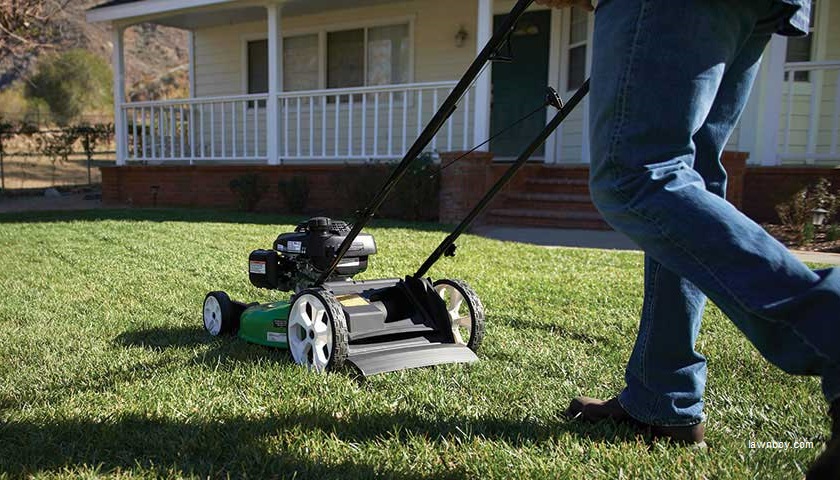The Virginia General Assembly is considering three bills that would add legal protections for domestic workers in jobs like cleaning, landscaping, and childcare. The bills are focused on banning discriminatory practices, implementing safety standards, and requiring worker’s compensation insurance. Advocates say the current exemption for domestic workers dates back to racist Jim Crow legislation and should be removed, but opponents say the bills put more burdens on domestic workers and the people who hire them.
HB 2032, introduced by Delegate Wendy Gooditis (D-Clarke) adds “Domestic Service” as a category that would be included under current workplace safety and workers’ compensation law. Gooditis said that the bill makes domestic service subject to workplace safety standards, and that inspectors can require access.
“Currently, domestic workers are excluded from the Virginia Workers’ Compensation act,” Gooditis said in subcommittee. “This bill would amend the law to remove the exclusion of domestic servants, so domestic workers are provided wage replacement for workplace injury.”
The bill states, “‘Domestic service’ means services related to the care of an individual in a private home or the maintenance of a private home or its premises, on a permanent or temporary basis, including services performed by individuals such as companions, cooks, waiters, butlers, maids, valets, and chauffeurs. ‘Domestic service’ does not include work that is irregular, uncertain, or incidental in nature and duration.”
Gooditis said that only the actual employer would be required to carry workers’ compensation insurance, so domestic workers hired through an agency would be covered by the agency.
In a public comment period, Joe Hudgins spoke representing the Independent Insurance Agents of Virginia. He said that although he supported portions of Gooditis’ bill, HB 2032’s workers’ compensation section would have unintended consequences.
He said, “We’re not opposed to domestic workers having workers’ compensation insurance. But what we’re creating here is a situation where if you require an employer to buy a policy for one domestic worker, and that domestic worker works 40-hour weeks for four different employers, then you’ve got the possibility of four different workers’ compensation policies running into one another.”
HB 2032 passed 55 to 43 and is now in committee in the Senate.
SB 1310
“It’s time for Virginia to get rid of the relic of Jim Crow laws that allows domestic workers to be treated differently than other workers in Virginia,” gubernatorial candidate Senator Jennifer McClellan (D-Richmond) said in a press release. “Generations of domestic workers have upheld the American economy, including my own mom, aunts, grandmother, and great-grandmother.”
McClellan added, “This new Domestic Workers Bill of Rights will finally ensure that all domestic workers have the right to a safe workplace free of harassment or discrimination.”
McClellan’s bill SB 1310 as passed bans discrimination and harassment against domestic workers, but when McClellan filed it, it also required domestic workers to covered by worker’s compensation insurance. Employers are required to have worker’s compensation if they have more than two employees, including themselves. Even temporary employees must be covered. Legislators worried about what that would mean for homeowners who hire domestic workers.
“If you have, for example, somebody that mows your grass and somebody that cleans your gutters, plus somebody that works in the house, all of a sudden you’ve got three and you create liability,” Senator Scott Surovell (D-Fairfax) said in committee.
Eventually, legislators voted to remove the worker’s compensation section, making SB 1310 in effect an anti-discrimination bill. The bill passed the Senate 21 to 18.
HB 1864
HB 1864, by Delegate Marcia Price (D-Newport News), adds domestic workers to the definition of employees protected by the Virginia Human Rights Act, protecting them from discrimination for reasons including race, color, religion, sex, sexual orientation, marital status, and pregnancy.
In subcommittee, Delegate Mark Cole (R-Stafford) asked how this would affect someone who wanted to hire a handyman, for example. He said, “What responsibilities or liabilities am I assuming should this bill pass and become law?”
Price and Delegate Chris Hurst (D-Montgomery) said HB 1864 only prevents employers, including homeowners, from discriminating against employees. The bill passed the House 55 to 44 and is in committee in the Senate.
Interest Groups React
Former Trump labor appointee and labor policy expert at the Mackinac Center for Public Policy F. Vincent Vernuccio argues that changing the classification of domestic workers risks adding unexpected burdens on homeowners who hire them.
“The bill opens up homeowners to substantial liability and the potential for lawsuits,” he wrote in a recent VA Works blog post. “Homeowners would be liable for lawsuits regarding discrimination and could be liable for large fines for violating even non-serious health and safety laws.”
He warned that homeowners don’t have the knowledge or resources to navigate employment law.
But supporters of the bills say that just because homeowners aren’t used to thinking about domestic workers as employees, that doesn’t mean that domestic workers should be denied the rights of other employees.
“The reality is that whether or not employers have it on their minds, when they hire somebody who works inside of their home, they are hiring someone who is doing professional work, and they are an employer of that person,” Erika Sklar, an organizer with Hand in Hand, a domestic employees advocacy group, told The Virginia Star.
Sklar said she didn’t think more regulation would reduce the number of jobs available to domestic workers. “We have passed policies like these across the country and we have not seen any decline in hiring practices. I think the reality is that it might make people more likely to pay on the books.”
Sklar said she thought the legislation might drive more people to resources like Hand in Hand. She said, “But we don’t think it will create any burden around the decision to hire.”
Vernuccio writes, “These burdens could lead homeowners to stop using independent workers around their house altogether for fear of violating the law. Domestic workers could then either lose work or freedom and flexibility by being forced to work for a separate company.”
– – –
Eric Burk is a reporter at The Virginia Star and the Star News Digital Network. Email tips to [email protected].




